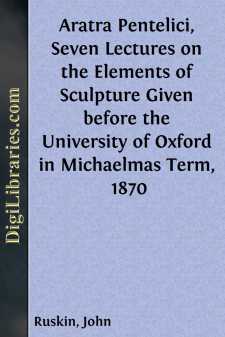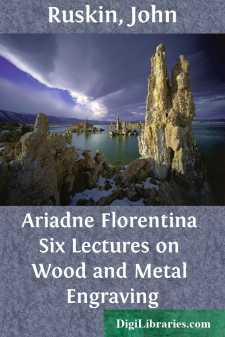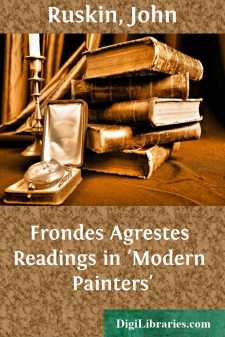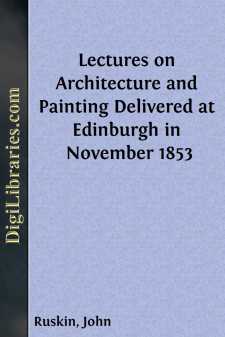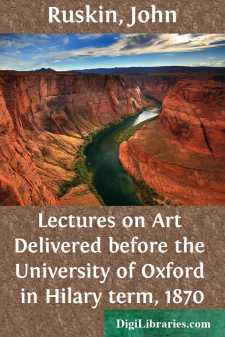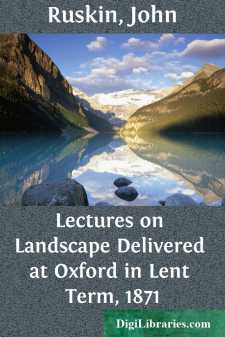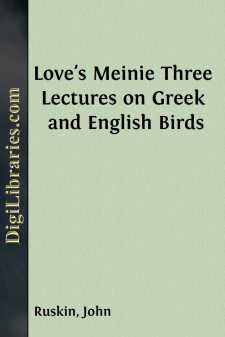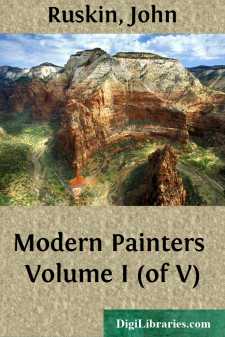Categories
- Antiques & Collectibles 13
- Architecture 36
- Art 48
- Bibles 22
- Biography & Autobiography 813
- Body, Mind & Spirit 142
- Business & Economics 28
- Children's Books 17
- Children's Fiction 14
- Computers 4
- Cooking 94
- Crafts & Hobbies 4
- Drama 346
- Education 46
- Family & Relationships 57
- Fiction 11829
- Games 19
- Gardening 17
- Health & Fitness 34
- History 1377
- House & Home 1
- Humor 147
- Juvenile Fiction 1873
- Juvenile Nonfiction 202
- Language Arts & Disciplines 88
- Law 16
- Literary Collections 686
- Literary Criticism 179
- Mathematics 13
- Medical 41
- Music 40
- Nature 179
- Non-Classifiable 1768
- Performing Arts 7
- Periodicals 1453
- Philosophy 64
- Photography 2
- Poetry 896
- Political Science 203
- Psychology 42
- Reference 154
- Religion 513
- Science 126
- Self-Help 84
- Social Science 81
- Sports & Recreation 34
- Study Aids 3
- Technology & Engineering 59
- Transportation 23
- Travel 463
- True Crime 29
John Ruskin
John Ruskin was a prominent 19th-century English writer, art critic, and social thinker known for his influential works on art, architecture, and society. His notable works include "Modern Painters," where he defended the work of J.M.W. Turner, and "The Stones of Venice," which analyzed Venetian art and architecture. Ruskin's ideas on social justice and the role of art in society had a profound impact on the Victorian era and beyond, inspiring movements such as the Arts and Crafts Movement.
Author's Books:
Sort by:
by:
John Ruskin
LECTURE I. THE DISCOVERY AND APPLICATION OF ART. A Lecture delivered at Manchester, July 10, 1857. 1. Among the various characteristics of the age in which we live, as compared with other ages of this not yet very experienced world, one of the most notable appears to me to be the just and wholesome contempt in which we hold poverty. I repeat, the just and wholesome contempt; though I see that some of...
more...
by:
John Ruskin
PREFACE. 1. I must pray the readers of the following Lectures to remember that the duty at present laid on me at Oxford is of an exceptionally complex character. Directly, it is to awaken the interest of my pupils in a study which they have hitherto found unattractive, and imagined to be useless; but more imperatively, it is to define the principles by which the study itself should be guided; and to...
more...
by:
John Ruskin
DEFINITION OF THE ART OF ENGRAVING. 1. The entrance on my duty for to-day begins the fourth year of my official work in Oxford; and I doubt not that some of my audience are asking themselves, very doubtfully—at all events, I ask myself, very anxiously—what has been done. For practical result, I have not much to show. I announced, a fortnight since, that I would meet, the day before yesterday, any...
more...
by:
John Ruskin
SECTION I. PRINCIPLES OF ART. 1. Perfect taste is the faculty of receiving the greatest possible pleasure from those material sources which are attractive to our moral nature in its purity and perfection; but why we receive pleasure from some forms and colours, and not from others, is no more to be asked or answered than why we like sugar and dislike wormwood. 2. The temper by which right taste is...
more...
by:
John Ruskin
PREFACE. [Pg v] The ladies to whom these letters were written have been, throughout their brightly tranquil lives, at once sources and loadstones of all good to the village in which they had their home, and to all loving people who cared for the village and its vale and secluded lake, and whatever remained in them or around of the former peace, beauty, and pride of English Shepherd Land. Sources they...
more...
by:
John Ruskin
The following Lectures are printed, as far as possible, just as they were delivered. Here and there a sentence which seemed obscure has been mended, and the passages which had not been previously written, have been, of course imperfectly, supplied from memory. But I am well assured that nothing of any substantial importance which was said in the lecture-room, is either omitted, or altered in its...
more...
by:
John Ruskin
PREFACE TO THE EDITION OF 1887. The following lectures were the most important piece of my literary work done with unabated power, best motive, and happiest concurrence of circumstance. They were written and delivered while my mother yet lived, and had vividest sympathy in all I was attempting;—while also my friends put unbroken trust in me, and the course of study I had followed seemed to fit me for...
more...
by:
John Ruskin
OUTLINE. 1. In my inaugural lecture, I stated that while holding this professorship I should direct you, in your practical exercises, chiefly to natural history and landscape. And having in the course of the past year laid the foundational elements of art sufficiently before you, I will invite you, now, to enter on real work with me; and accordingly I propose during this and the following term to give...
more...
by:
John Ruskin
PREFACE. Brantwood, 9th June, 1881. Quarter past five, morning. The birds chirping feebly,—mostly chaffinches answering each other, the rest discomposed, I fancy, by the June snow; the lake neither smooth nor rippled, but like a surface of perfectly bright glass, ill cast; the lines of wave few and irregular, like flaws in the planes of a fine crystal. I see this book was begun eight years...
more...
by:
John Ruskin
The work now laid before the public originated in indignation at the shallow and false criticism of the periodicals of the day on the works of the great living artist to whom it principally refers. It was intended to be a short pamphlet, reprobating the matter and style of those critiques, and pointing out their perilous tendency, as guides of public feeling. But, as point after point presented itself...
more...



